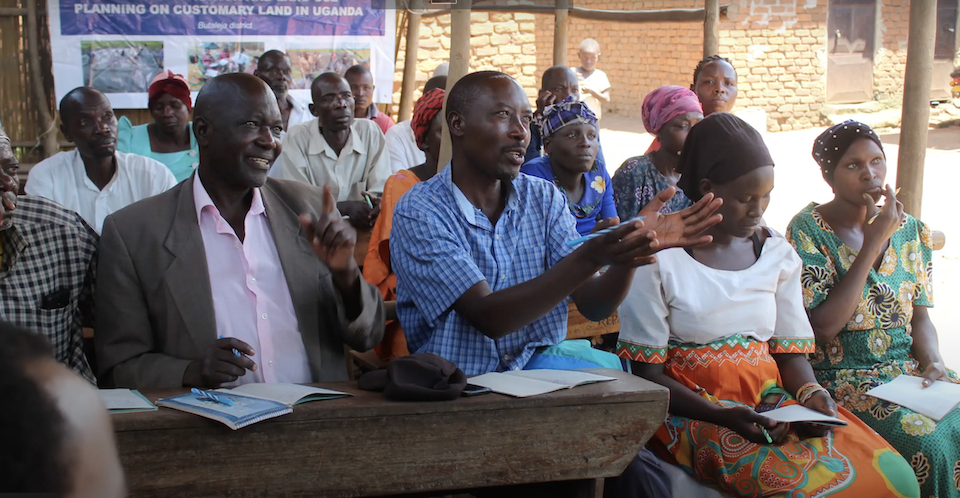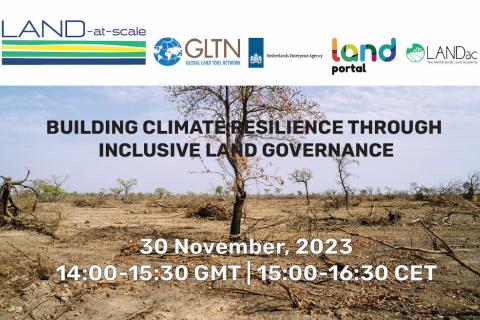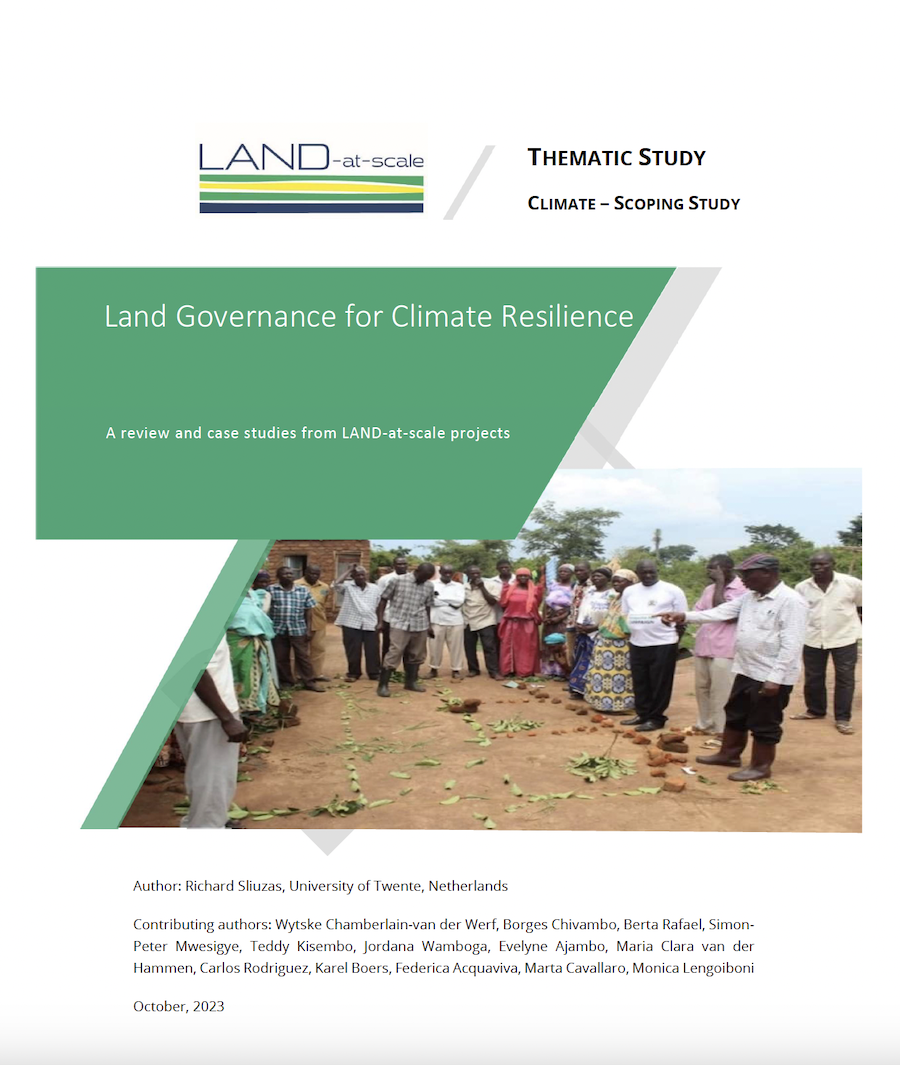On the opening day of #COP28, we hosted a webinar, “Building Climate Resilience through Inclusive Land Governance,” that delved into the crucial role which inclusive land governance plays in building climate resilience.
Richard Sliuzas, Emeritus Professor, University of Twente: Sliuzas elaborated on the importance of integrating land governance into climate resilience strategies. He pointed out how vulnerable communities often face the brunt of climate change impacts due to weak land rights and poor governance. Presenting Land Governance for Climate Resilience: A review and case studies from LAND-at-scale projects, a study he authored and launched before the webinar, he highlighted the success, and challenges, of community-driven initiatives in Uganda, Colombia and Somalia, where local knowledge and involvement contributed to more sustainable land use and effective climate adaptation measures. He stressed that recognizing and securing land tenure rights is crucial for enabling communities to invest in land for long-term resilience.
Mr. Ronald Murungi, Physical Planner, Ministry of Lands, Housing and Urban Development (MLHUD), Uganda: Murungi emphasized the role of local governments in Uganda in fostering sustainable land management. He noted that local government involvement ensured the longevity and effectiveness of community-developed wetland management plans. Murungi also spoke about the challenges in aligning national policies with local needs and the efforts made by the Ugandan government to bridge this gap through awareness and capacity building.
Ombretta Tempra, Human Settlements Officer, UN-Habitat (MENA) and GLTN: Tempra's intervention focused on the complexities of land governance in the Arab region, particularly in the context of climate change and inequality. She advocated for an integrated approach that combines land restoration, climate resilience, and social equality. She underscored the importance of empowering local communities and civil society as key stakeholders in dialogues with governments, highlighting the potential of these groups in driving sustainable solutions.
Kaj van de Voorstenvoort, Ministry of Foreign Affairs of the Netherlands (IGG-Climate): Van de Vorstenbosch discussed the Dutch approach to inclusive forest governance and landscape management. He detailed how the Netherlands Ministry of Foreign Affairs supports initiatives, such as the Forest Tenure Funders Group, that strengthen local community institutions and promote cooperation among various stakeholders. He highlighted the necessity of integrating the objectives of local communities, private sector, and government agencies for effective landscape governance and climate resilience.
Bernardo Almeida, Assistant Professor, Leiden University College (LUC): Almeida, focusing on legal aspects, emphasized the need for clear legal frameworks that are adaptable to local contexts. Using Mozambique as a case, he pointed out the challenges in implementing laws that account for local land use complexities and climate risks. He suggested that effective legal frameworks should not only support land rights but also facilitate local communities' engagement in decision-making processes. A clear legal framework protects both the land right holders and the authorities that need to protect these rights.
Shuaib Lwasa, Professor, International Institute of Social Studies (ISS), University of Twente: Lwasa brought attention to the pressures on land resources due to urbanization, agriculture, and climate change. He highlighted the role of governance in managing these challenges, emphasizing the need for evidence-based solutions. He pointed out the value of local research in providing data and insights necessary for formulating land-based strategies to build resilience against climate change impacts.
The reflections of the speakers underscored the multifaceted approach required in building climate resilience through inclusive land governance. They highlighted the need for legal frameworks, community involvement, local government capacity building, and multi-stakeholder cooperation, providing a nuanced understanding of the challenges and solutions in order to scale up land governance interventions strategically and in a way that contributes to climate resilience.
Results of the Mentimeter surveys




